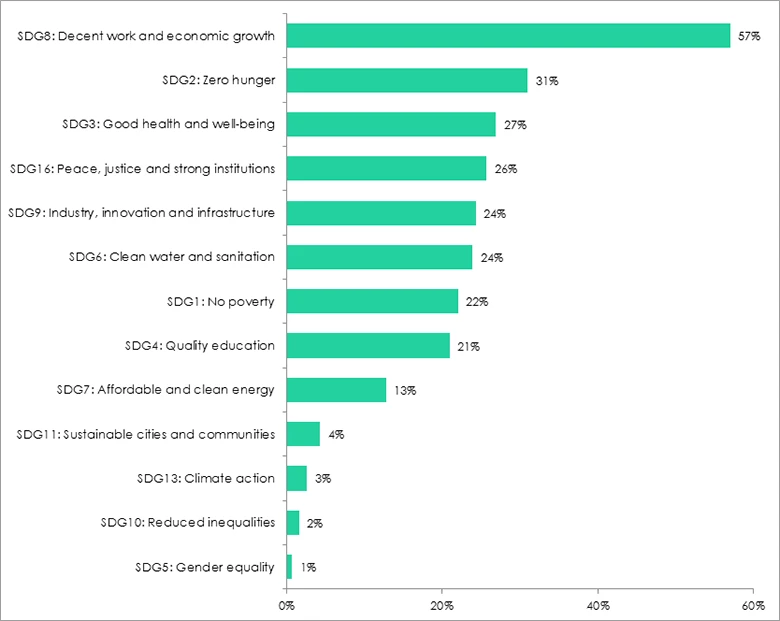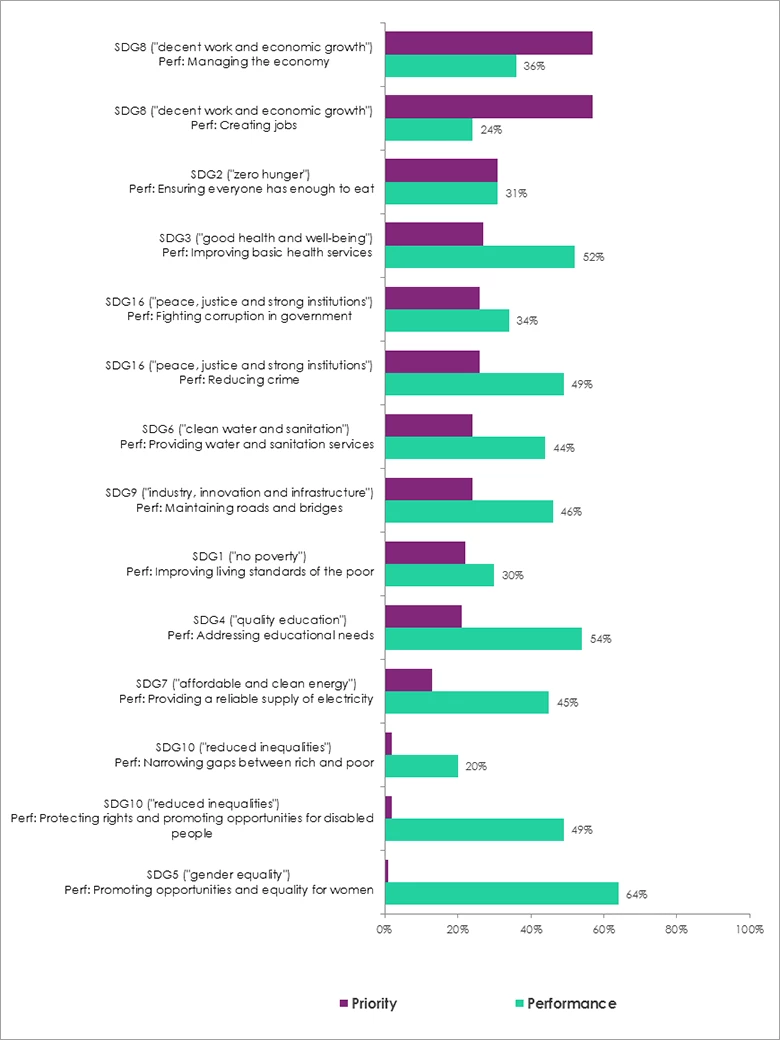One of the challenges presented by the ambitious Sustainable Development Goals (SDGs) laid out in the UN 2030 Agenda is where to begin.
Afrobarometer, which conducts public attitude surveys in more than 30 African countries, argues that one critical place to start is by asking the people.
When you do, you get a pretty clear answer: Africans want good jobs and economic growth – and aren’t getting enough of them.
In the first of its Pan-Africa Profiles based on recent public-opinion surveys in 34 African countries, Afrobarometer maps citizens’ “most important problems” onto the SDGs, then examines how Africans rate their governments’ performance on these priority issues.
By far the highest priority for everyday Africans is SDG8, “decent work and economic growth” – an area where governments are widely seen as doing a particularly poor job.
Seven other SDGs capture high popular attention (see Figure 1): SDG2: zero hunger, SDG3: good health and well-being, SDG16: peace, justice and strong institutions, SDG9: industry, innovation and infrastructure, SDG6: clean water and sanitation, SDG1: no poverty, and SDG4: quality education.
Figure 1: Citizens’ prioritization of the SDGs | 34 countries | 2016/2018

Even in sectors that don’t rank as highly as jobs and food, such as gender equality and climate change, Afrobarometer findings indicate significant support for action. Seven in 10 Africans endorse equality for women as political leaders and landowners. Similarly, among those who have heard of climate change, three-quarters (76%) want action to stop or mitigate it.
Priorities vary by country and region, age, and gender, and are particularly strongly shaped by poverty and low socioeconomic development, both at the individual level and the country level. Jobs and economic growth and good governance are higher priorities for wealthier individuals and for more economically developed countries. Among poorer people and countries, jobs and growth are important, but people place higher priority on fighting hunger and having adequate supplies of clean water and energy.
Unfortunately, the highest-priority sectors often record the worst government performance (see Figure 2). With regard to SDG8, for example, significant majorities across Africa rate their governments poorly on both managing the economy (58%) and creating jobs (73%). Even with the extra incentives for action associated with the 2030 Agenda, citizens do not yet see their governments achieving the successes that will be required to reach SDG targets.
In the coming months, Afrobarometer’s Pan-Africa Profiles series will publish extensive cross-country analyses on a series of critical topics, including many of the individual SDGs. Interested readers may follow our releases online at #VoicesAfrica and www.afrobarometer.org.
Figure 2: SDG priority vs. government performance | 34 countries | 2016/2018


Join the Conversation